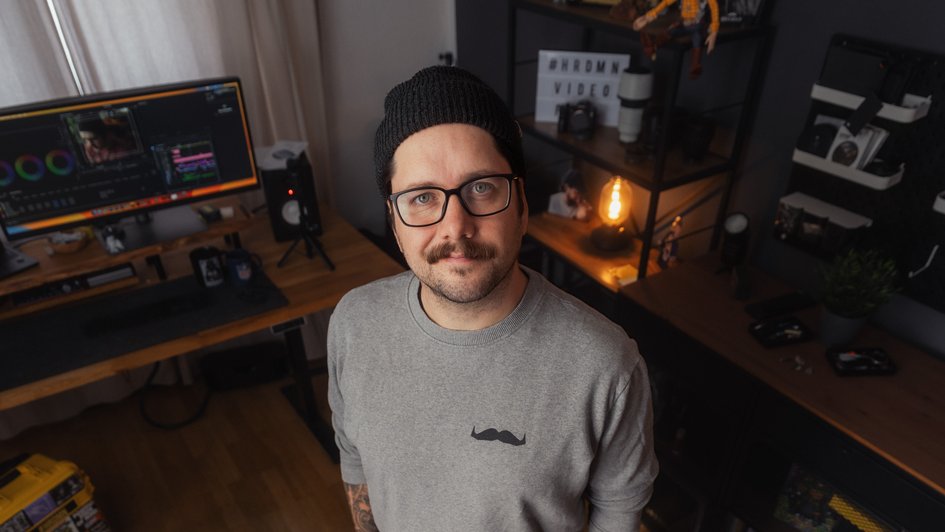When you see more men with moustaches in November, there is more to it than just fashion awareness: "Movember" is an international campaign that draws attention to men's health issues - in particular prostate and testicular cancer prevention and mental health.
Since the initiative was founded in Australia around 20 years ago, millions of people around the world have got involved to raise funds and awareness. Andreas Rodemann is one of those active in Braunschweig. He studied media management at Ostfalia in Salzgitter and then set up his own business as a photographer and videographer in 2020.
Originally, participating in "Movember" was a spontaneous idea from his former band "Gr:mm", but then the topic took on a personal meaning for him: his father died of cancer in 2013 and he himself was diagnosed with testicular cancer in 2019. His own disease was detected early and successfully treated - a stroke of luck that showed him how crucial timely action can be.
Today, Andreas uses his social media channels to provide information about physical and mental health and interacts with those affected. It is particularly important to him that men learn to talk more openly about complaints, fears and feelings. Many still avoid preventative appointments, and topics such as depression or suicide are often taboo. Yet men are disproportionately affected by mental health crises. "For me, strength means admitting weakness, i.e. talking openly about your feelings, crying, going to the doctor. It also means showing that you're not a rock of strength, but admitting when something isn't right," the 39-year-old tells us in the interview.
Although Movember only lasts one month, Andreas wants the message to have a lasting effect: men's health affects both body and mind, and prevention can save lives. "I actually think the biggest problem is that we still think a lot in terms of traditional role models. You might think that this only affects older generations, but unfortunately that's not the case at all. The results of surveys of men between the ages of 18 and 35 are alarming and make it clear that toxic masculinity is absolutely still present. We need to move away from this," Andreas continues. His appeal is to take symptoms seriously, go for regular check-ups and seek dialogue - with doctors, friends or family.

